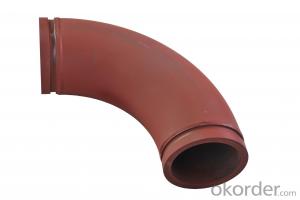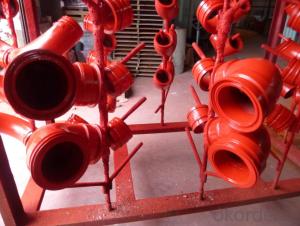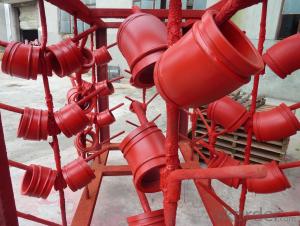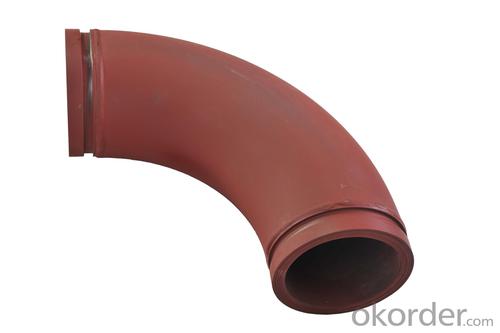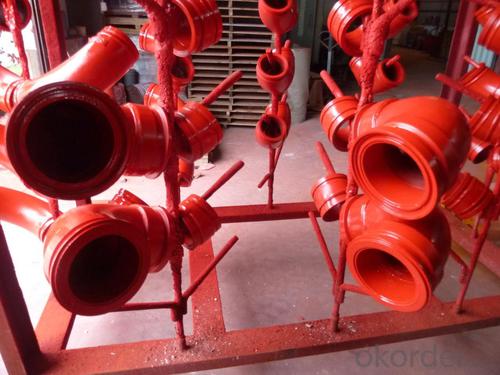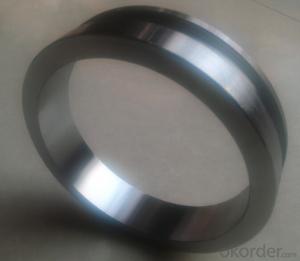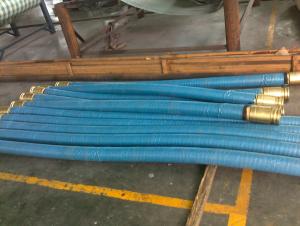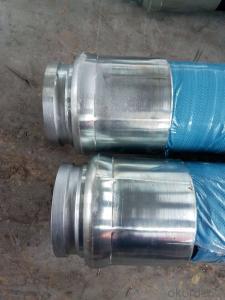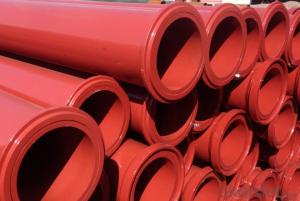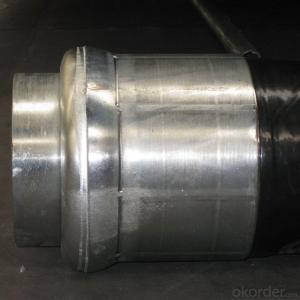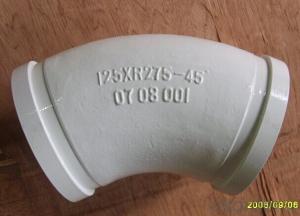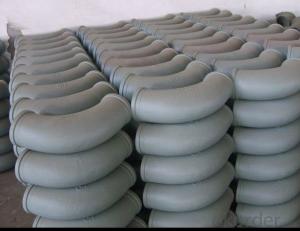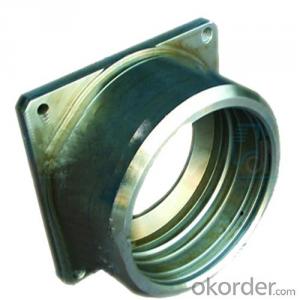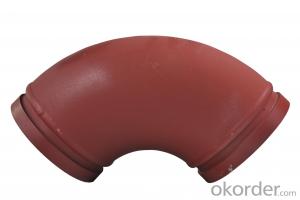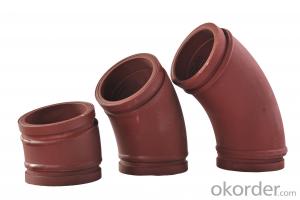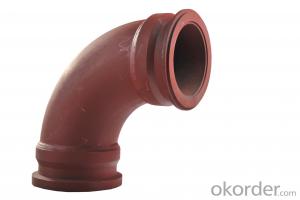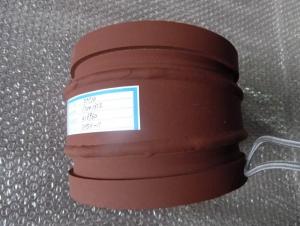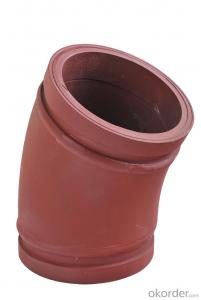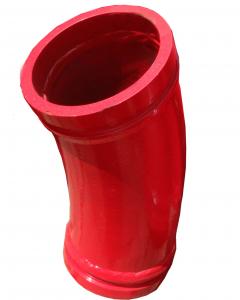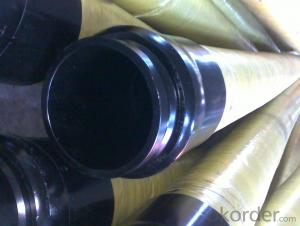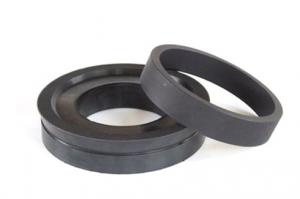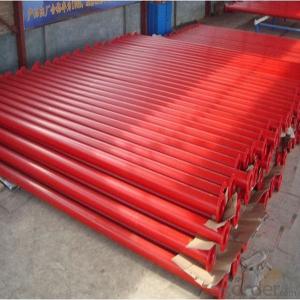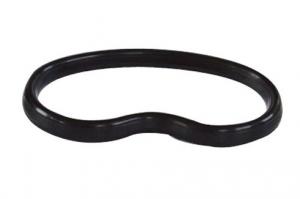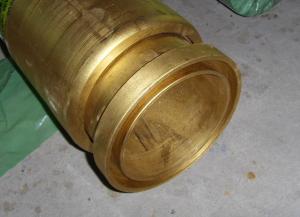Twin Wall Elbow for Concrete Pump R275 90DGR
- Loading Port:
- Tianjin
- Payment Terms:
- TT OR LC
- Min Order Qty:
- 100 pc
- Supply Capability:
- 3000 pc/month
OKorder Service Pledge
OKorder Financial Service
You Might Also Like
Twin Wall Elbow (Twin Wall Flange)
(1) Material: Q235 (outside) + GCr15(inside)
(2) Thickness: 3mm (outside) + 9mm (inside)
(3) Technology: Quenching under high temperature
(4) Characteristics: the inner rigidity to 63 HRC; the outside has so high toughness to keep the inner.
(5) Matched with: Twin wall flange, Alloy (GCr15) + 20#
(6) Working Pressure:170bar
(7) Service life: above 60,000 cubic meters.
(8) Package: PP woven bag and plastic cap
Twin wall elbow is created with research of us and need of the market. Its service life and working pressure are better than the casting. Besides, We can supply 90D, 45D, 30D, 25D, 20D, 15D, 10D. And it can be used for PM, JUNJIN, Schwing, Cifa, Sany, ect.
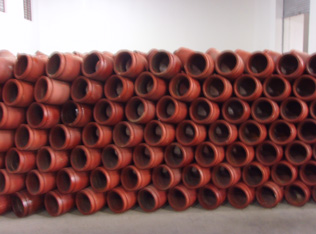
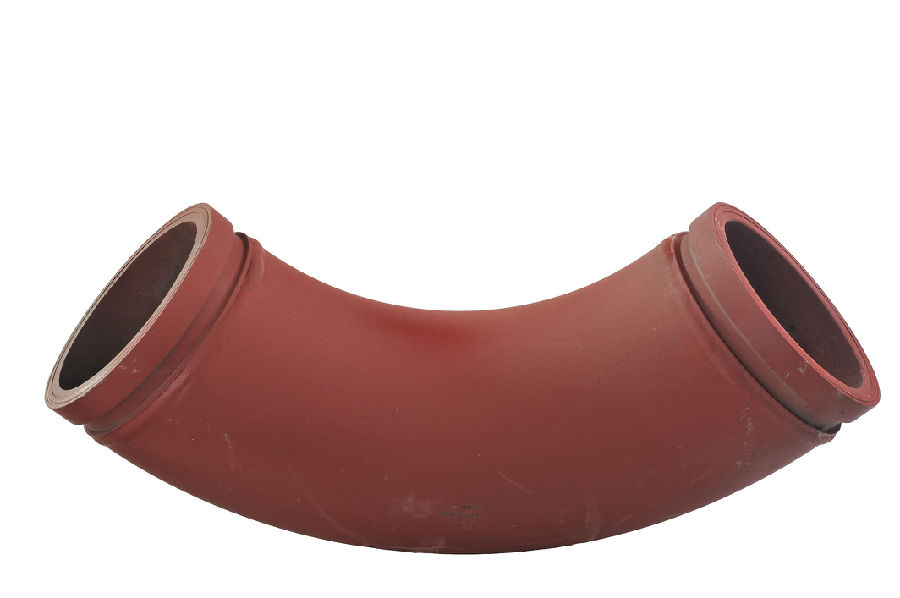
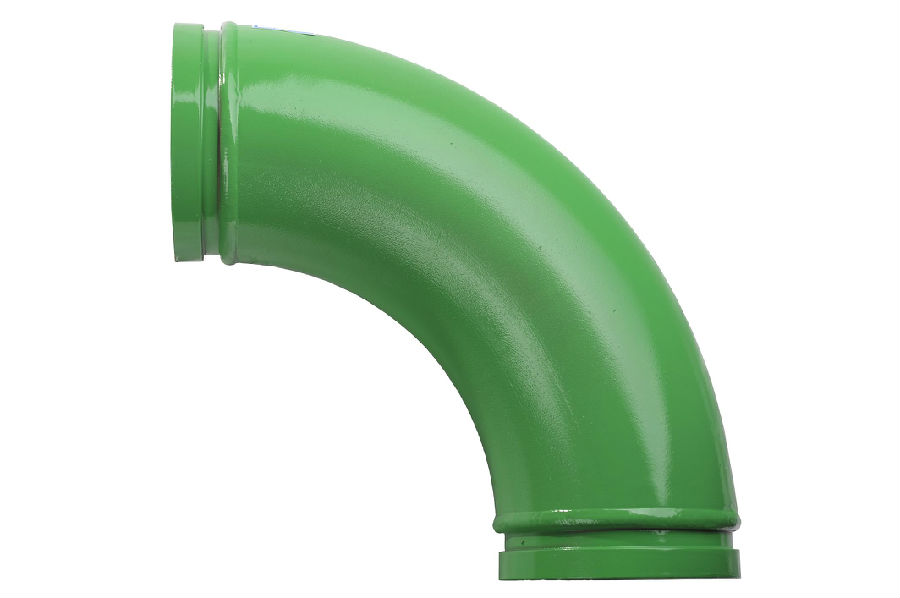
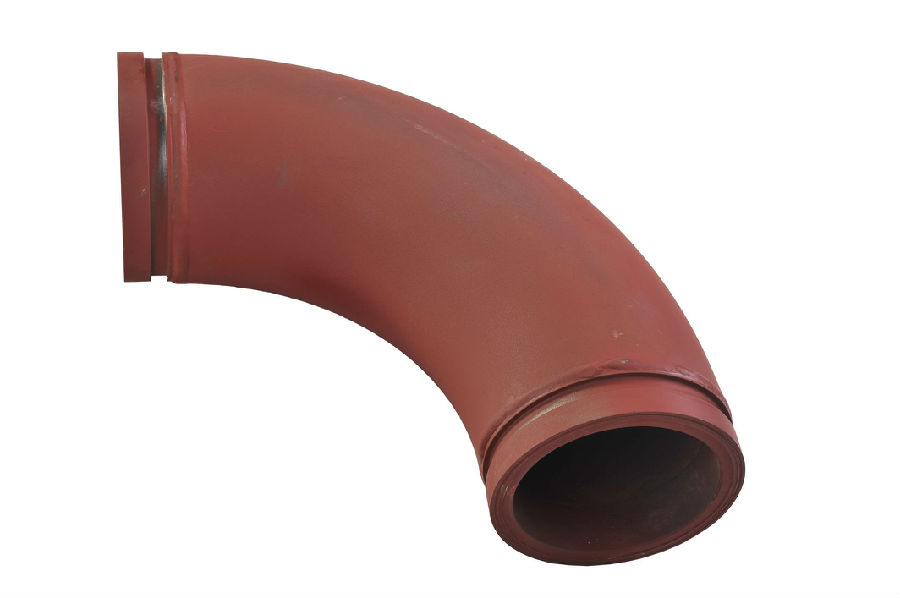
- Q: Can concrete pump spare parts be pre-assembled or pre-tested before installation?
- Yes, concrete pump spare parts can be pre-assembled and pre-tested before installation. This practice ensures that the spare parts are functioning properly and ready for immediate use, saving time and effort during the installation process. Pre-assembly and pre-testing also help identify any potential issues or defects, allowing for necessary adjustments or replacements before installation, ensuring the smooth operation of the concrete pump.
- Q: What is the function of a concrete pump hopper agitator shaft bearing?
- The primary function of the bearing on the agitator shaft of a concrete pump hopper is to offer support and facilitate smooth rotation. Typically constructed from strong materials like steel or bronze, the bearing is designed to endure substantial loads and vibrations. Its purpose is to minimize friction and prevent premature seizing or wear of the agitator shaft. Furthermore, the bearing aids in maintaining the alignment of the shaft, thereby ensuring efficient concrete mixing within the hopper. Overall, the bearing on the agitator shaft of a concrete pump hopper is essential for its reliable and consistent performance.
- Q: Can I get spare parts for both concrete pumps with and without agitators?
- Yes, spare parts are available for both concrete pumps with and without agitators.
- Q: Can concrete pump spare parts be used interchangeably between different pump brands or models?
- Using spare parts from different pump brands or models is not possible due to the specific specifications and dimensions of each pump. The spare parts must be manufactured to fit the requirements of the particular brand and model. Using spare parts from a different brand or model can lead to compatibility problems or even damage the pump. To ensure the pump functions properly and lasts a long time, it is always advisable to use genuine spare parts from the same brand or model.
- Q: How does a concrete pump S valve function?
- Controlling the flow of concrete from the hopper to the discharge outlet is the primary function of the S valve in a concrete pump. This valve is a critical component in the concrete pumping system, enabling the accurate and efficient delivery of concrete to the intended destination. The S valve comprises two distinct valves, one on each side, connected by a central shaft. These valves are shaped like the letter "S," hence the name. Each valve possesses a concrete outlet and a hydraulic cylinder that governs its movement. When the concrete pump is activated, the hydraulic system exerts pressure on the cylinders, causing them to extend and open the valves. This opening enables the flow of concrete from the hopper into the pump's cylinder. Once the concrete enters the cylinder, the hydraulic system reverses the pressure on the cylinders, prompting them to retract. This retraction movement closes the valves, effectively sealing the cylinder and preventing any concrete from flowing backward. As the cylinder retracts, it propels the concrete towards the discharge outlet. The pressure generated by the cylinder's retraction forces the concrete through the outlet pipe, directing it to the desired pouring location. The ingenious design of the S valve ensures a seamless and uninterrupted flow of concrete, eliminating any potential interruptions or obstructions. Moreover, it grants operators a high level of control over the concrete placement, enabling them to adjust the flow rate and direction according to their requirements. In conclusion, the concrete pump S valve assumes the crucial role of regulating the concrete flow, guaranteeing its efficient and precise delivery to the intended destination. Its dependable and effective operation is indispensable for the success of concrete pumping operations.
- Q: What is the washing process of the concrete pump pipe?
- Anti pump action a few times, release the pipe pressure, cut off the power supply
- Q: What is the purpose of a concrete pump hopper grate?
- The purpose of a concrete pump hopper grate is to filter out any large debris or aggregates from the concrete mixture as it is being pumped into the hopper. It helps to ensure a smooth and consistent flow of concrete, preventing any blockages or clogs in the pump system.
- Q: What is the purpose of a concrete pump accumulator?
- The purpose of a concrete pump accumulator is to store hydraulic energy and provide a surge of pressure when needed, ensuring a continuous and efficient flow of concrete during pumping operations.
- Q: When concrete is poured, how high can the concrete pump be put?
- At present, the commonly used car pump, the length of the arm more than 30 meters to more than 40 meters, there are a small number of arms as long as more than 50 meters to more than 70 meters
- Q: What are the indications of a clogged or damaged concrete pump filter?
- The indications of a clogged or damaged concrete pump filter can include decreased flow rate, loss of pressure, irregular or uneven concrete distribution, increased wear and tear on the pump system, and potential blockages or breakdowns in the pump.
Send your message to us
Twin Wall Elbow for Concrete Pump R275 90DGR
- Loading Port:
- Tianjin
- Payment Terms:
- TT OR LC
- Min Order Qty:
- 100 pc
- Supply Capability:
- 3000 pc/month
OKorder Service Pledge
OKorder Financial Service
Similar products
Hot products
Hot Searches
Related keywords
